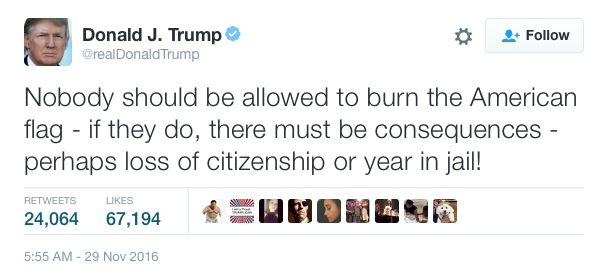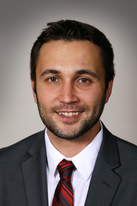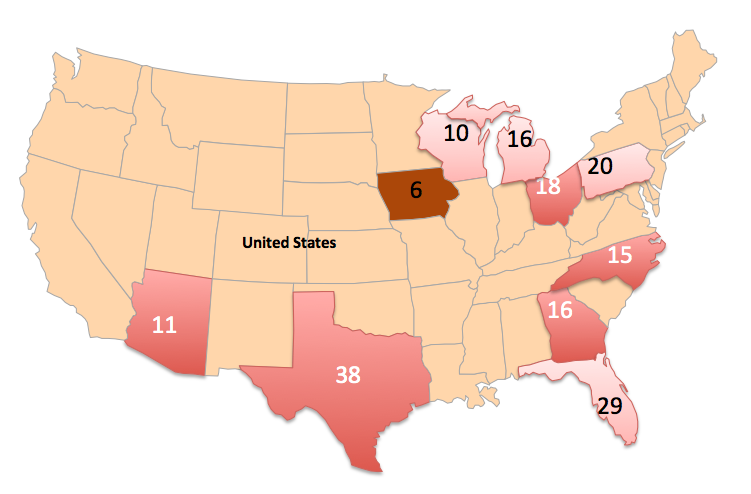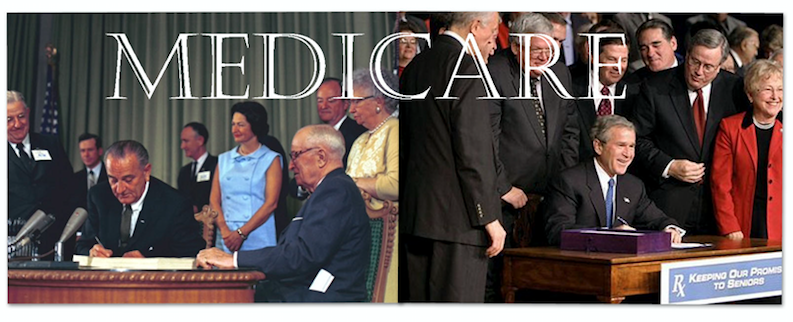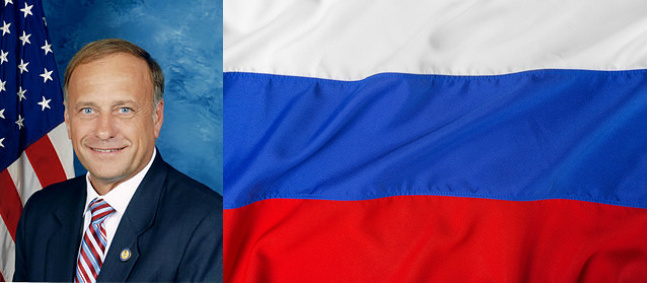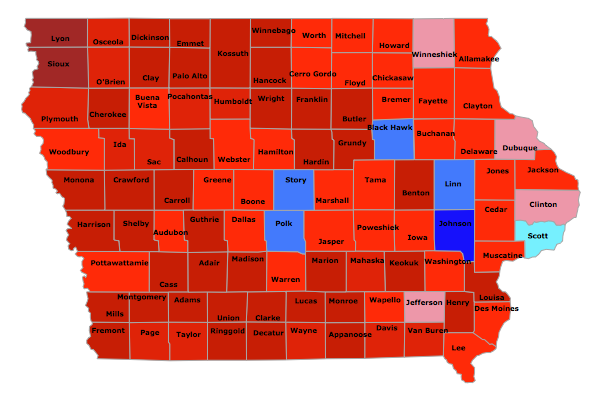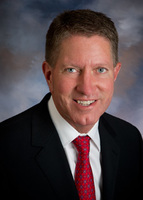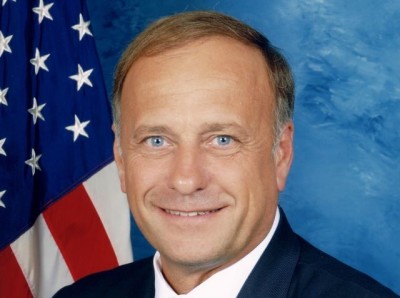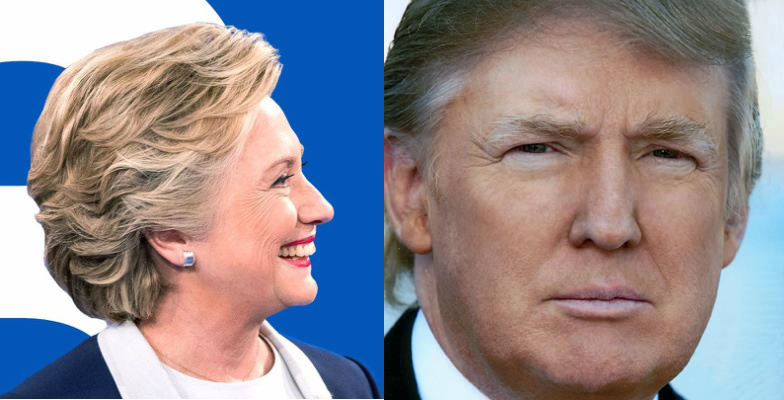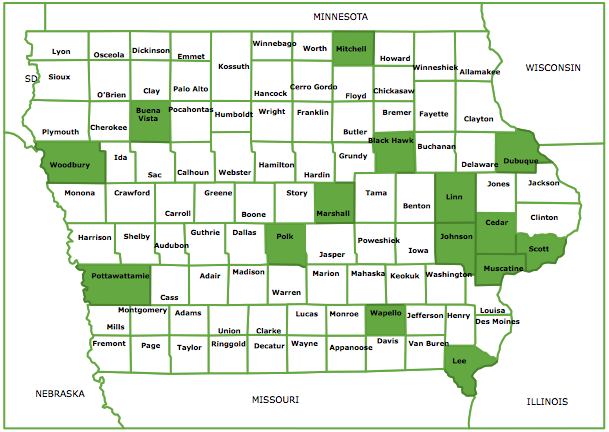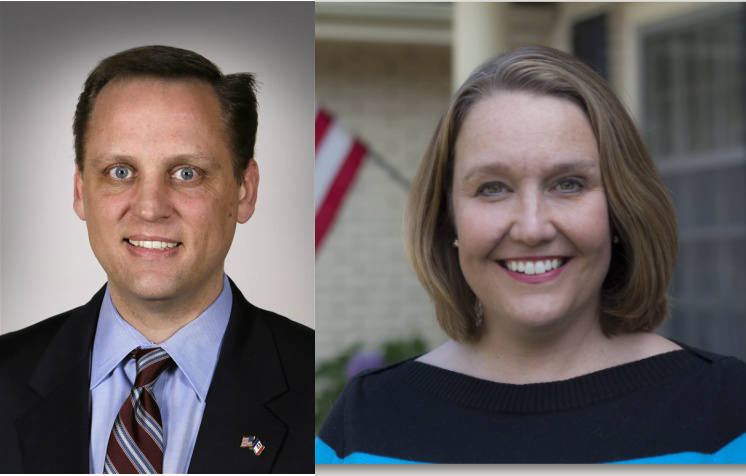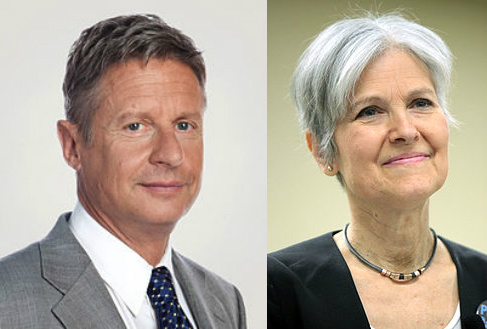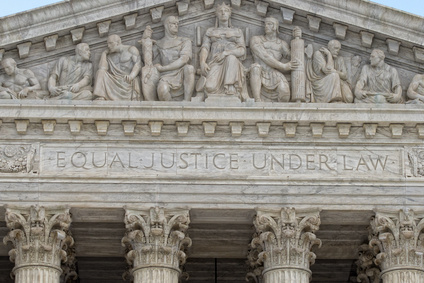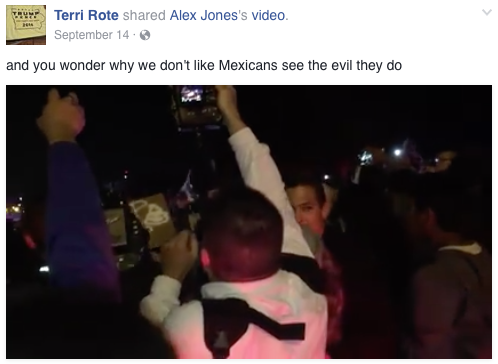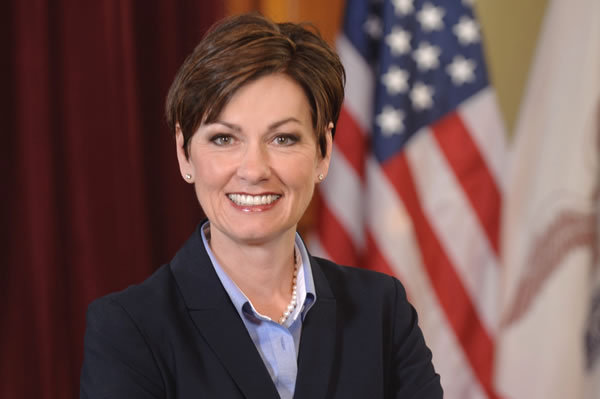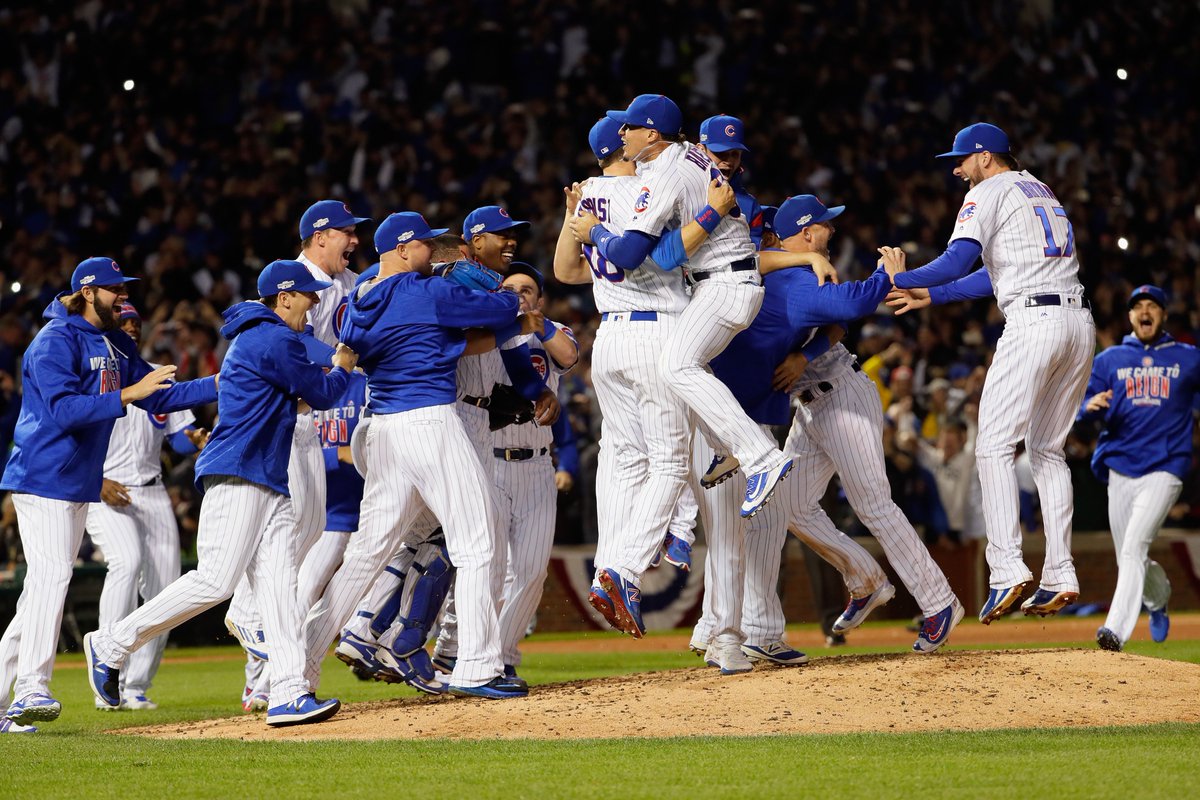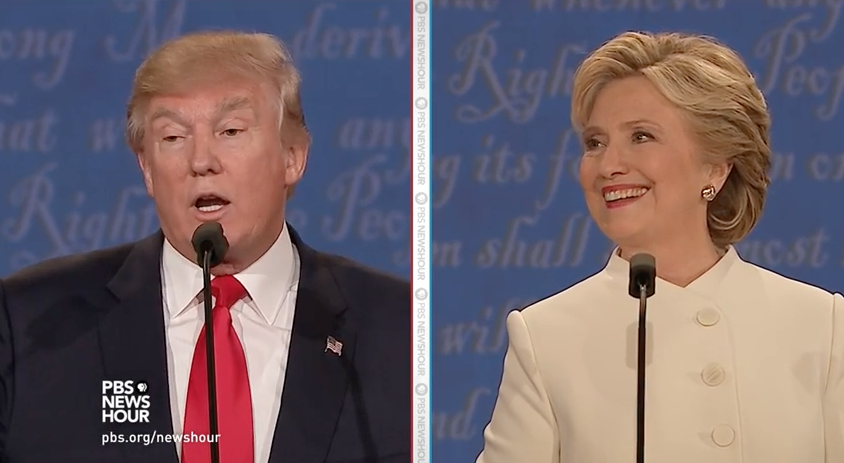No need to ask what’s on your mind this weekend, Bleeding Heartland readers. Three days from now, this election will be over except for the recounts. Hillary Clinton and Donald Trump have released their closing arguments to television viewers. Clinton’s 60-second ad “Roar” is a lot more upbeat than Trump’s two-minute “Argument for America.” UPDATED to add: the Trump commercial pushes some anti-Semitic buttons.
Nearly 600,000 Iowans have already voted. I enclose below the latest absentee ballot figures, as of today and at the same point in the 2012 campaign. The Democratic lead in ballots received by county auditors stands at 41,881. On the Saturday before election day 2012, Democrats had banked 65,099 more votes than Republicans.
The Des Moines Register released toplines from Selzer & Co’s final Iowa poll of the year a few minutes ago. It’s not good news for Democrats: Trump leads Clinton by 46 percent to 39 percent, with 6 percent supporting Libertarian Gary Johnson and 1 percent the Green Party’s Jill Stein. Last month’s Selzer poll showed Trump 4 points ahead.
The latest surveys from Simpson College/RABA Research and Emerson College both showed Trump leading Clinton by 44 percent to 41 percent in a field including multiple candidates.
Loras College in Dubuque released its final Iowa poll earlier today: Clinton 44 percent, Trump 43 percent, Johnson and Stein 3 percent each, and 7 percent undecided. Loras found a 10-point advantage for Trump (47-37) among respondents who said they had not yet voted. Clinton’s net favorability (-8) was substantially better than Trump’s (-36). I enclose below excerpts from the Loras polling memo and Jason Noble’s write-up of the Selzer poll in the Des Moines Register. I’ll update later with more details as the Register publishes further results.
Lots of pundits have written off Iowa already, given the demographics that favor Trump (a mostly white population, older than in other swing states and with a relatively small proportion of college graduates). Clinton’s campaign is working GOTV hard. A field office near you could use your help these last few days. If you don’t feel comfortable talking to strangers on the phone or at the doorstep, you can bring food to campaign staff and volunteers, or offer to be a poll watcher on election day.
I can’t remember more perfect weather for canvassing the weekend before a general election. For those planning to hit the doors tomorrow, Monday, or Tuesday, here are my best tips and pointers from superstar volunteer Laura Hubka, the Howard County Democratic Party chair.
Some GOTV “scripts” are geared toward voters already identified as supporters of Democratic candidates. These people don’t need persuading. Volunteers will remind them of their polling place location and opening times and will ask for their plan to vote. Research has shown that when people articulate their plan (for instance, before work or after dropping the kids off at school), they are more likely to follow through and cast a ballot. Clinton’s campaign has an online tool for voters and hilarious YouTube video of Joe Biden (enclosed below) on why making a plan “is like the whole secret of life.”
All 99 county auditors’ offices will be open for early voting in person on Monday, November 7, from 8 am to 5 pm.
Important reminders for absentee voters who have not yet mailed back their ballots: late-arriving absentee ballots must be postmarked by November 7 in order to be counted. Post offices no longer routinely attach postmarks, so either 1) take your ballot to a post office on Monday and request a postmark, 2) hand-deliver your ballot to your county auditor’s office by 9 pm on November 8, or 3) ask a campaign volunteer to pick up your completed ballot so it can be hand-delivered on time.
Make sure to follow instructions carefully: fill in ovals completely, seal the marked ballot in the secrecy envelope, seal that envelope inside the affidavit envelope, and sign and seal the affidavit envelope.
If you’ve changed your mind about voting absentee, bring your unmarked ballot to your regular polling place on November 8, so you can “surrender” it and receive a regular ballot. If you don’t have your absentee ballot with you, poll workers will make you fill out a provisional ballot instead.
Final note: political junkies can enter Bleeding Heartland’s Iowa election prediction contest by posting a comment in this thread before 7 am on November 8.
Continue Reading...

